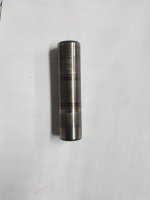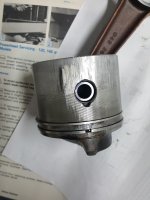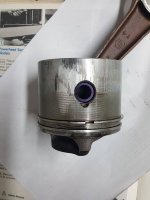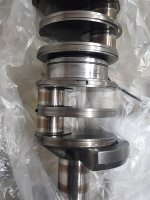I just picked up a 1988 Stratos bass boat that is in extremely good condition and lavishly equipped for very little money because the seller had overheated the motor. I removed and dissembled the powerhead hoping the damage was minor but the cylinders need to be bored out. One cylinder has a gouge at the top that is approx .220" wide, .5" long and best I can measure it is .022 deep at the deepest point. I determined these dimensions by applying epoxy putty into the gouge and measuring the impression after the epoxy hardened.
I am on a tight budget so I would like to avoid sleeving that cylinder. Assuming the gouge is truly only .022" deep and I used a .040 over piston the bore job would not completely eliminate the gouge but leave a very minor depression behind. Could I get away with something like that?
I suspect the ever so slight remaining gouge would cause a slight loss of cylinder pressure/power loss but I am willing to accept that if it is the only result.
I appreciate the thoughts of those that are experienced with these matters.
I am on a tight budget so I would like to avoid sleeving that cylinder. Assuming the gouge is truly only .022" deep and I used a .040 over piston the bore job would not completely eliminate the gouge but leave a very minor depression behind. Could I get away with something like that?
I suspect the ever so slight remaining gouge would cause a slight loss of cylinder pressure/power loss but I am willing to accept that if it is the only result.
I appreciate the thoughts of those that are experienced with these matters.





